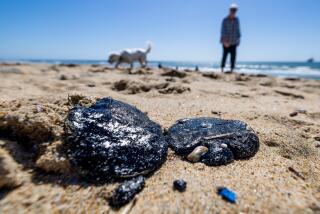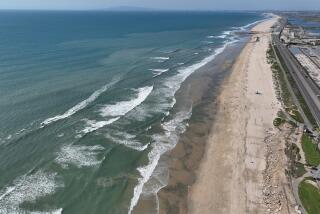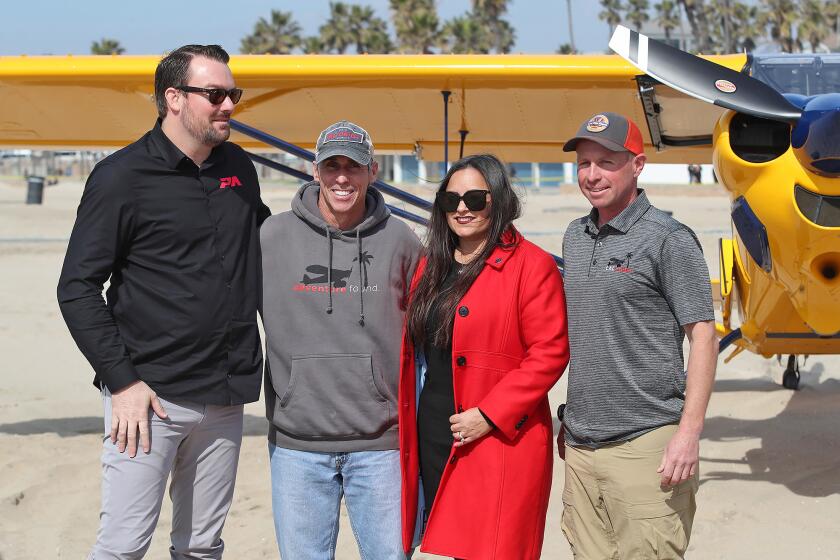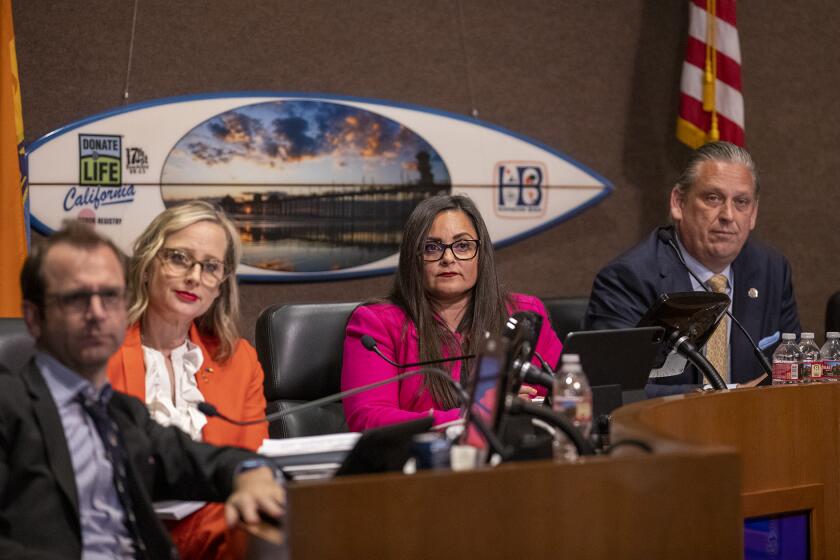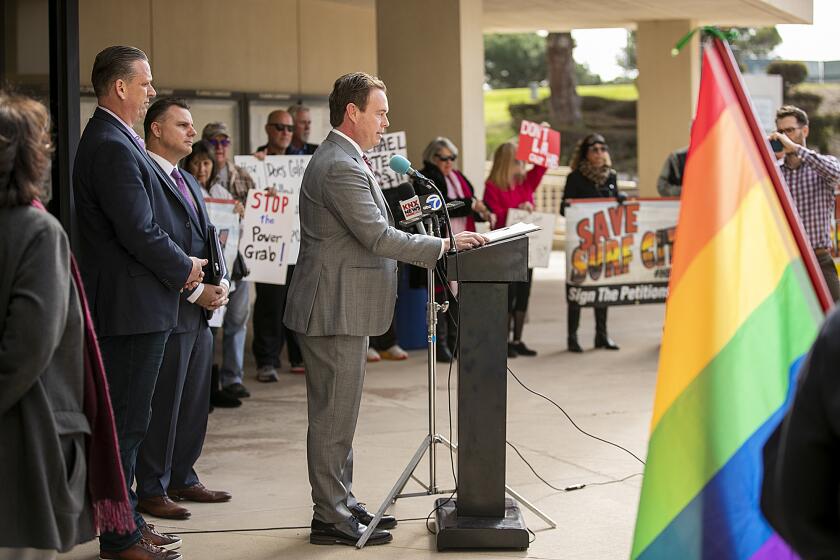11 rehabilitated Canada geese released back into Huntington Beach habitat
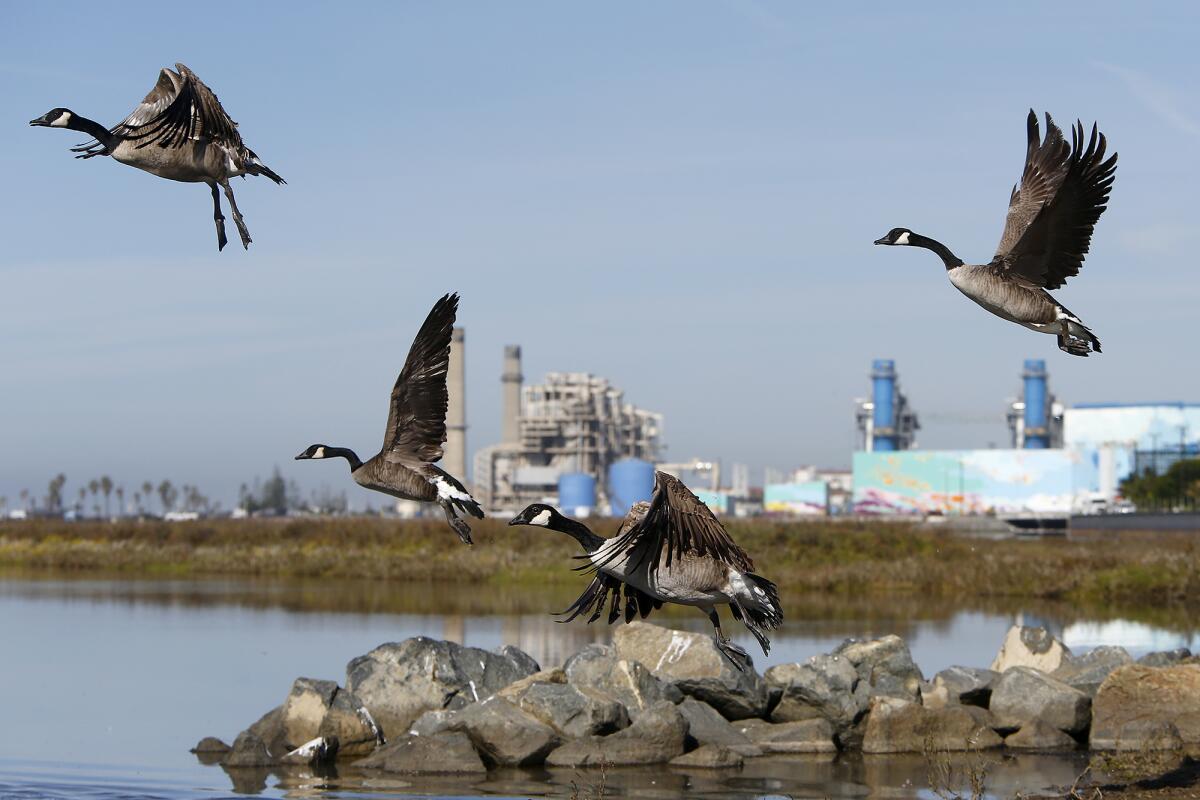
Release the geese!
That’s just what officials from the Wetlands & Wildlife Care Center did Thursday morning at Brookhurst Marsh in Huntington Beach.
Eleven Canada geese went back into their natural habitat.
The geese had been in the center’s care for months to be treated for fishing hook injuries and were originally set to be released on Oct. 4.
But that had to be pushed back after the oil spill estimated at 25,000 gallons that happened three days earlier off the Huntington Beach coast.
Debbie McGuire, executive director of the Wetlands & Wildlife Care Center, said the green light to set the geese free was given by the Unified Command spill response team, which includes the U.S. Coast Guard, the California Dept. of Fish and Wildlife and Amplify Energy.
McGuire said she was relieved when she found out earlier this week that it was all right to release the birds back into the marsh.
“The worry about holding anybody back when they’re ready to go is that there can be secondary problems that come on,” McGuire said. “They can injure themselves in the cage, before we get them out. They became indirect victims [of the oil spill], because they had no clean environment.
“We’re very, very happy. It’s the most amazing feeling. A couple of them had to go through surgeries, and then you don’t even know if they’re going to make it. Now they’re free.”
John Villa, the executive director of the Huntington Beach Wetlands Conservancy, said the Brookhurst Marsh was judged to be clean enough for the birds and posed no health hazards.
“Unfortunately, that doesn’t mean that all of the oil is out of here,” he said.
“It just means that it’s at a level that it doesn’t pose any health hazards. … We’re going to be battling [the oil spill] for at least the next five years, there’s no doubt about that, when you look at soil contamination, plant contamination. Some of that, you won’t see the effects right away, but we’ll be working on that over time.”
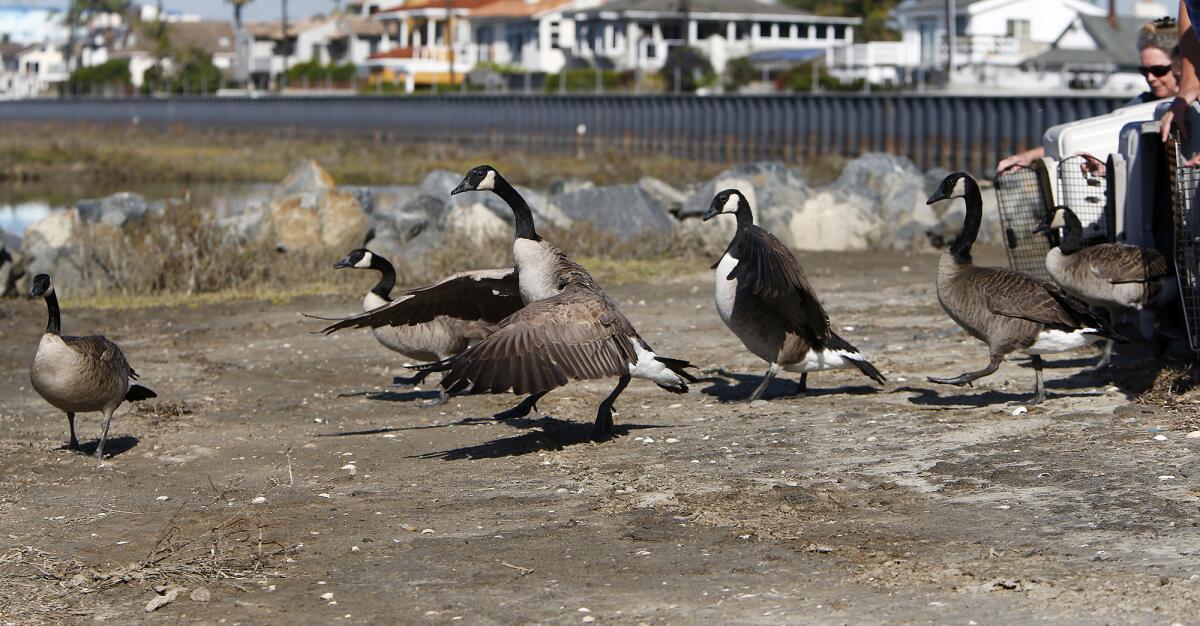
Oiled animals also continue to be released. On Wednesday, the Oiled Wildlife Care Network released six oiled birds — three Western grebes and three sanderlings — south of the pier in Huntington Beach. According to the network’s website, there had been 108 oiled birds recovered since the spill as of Wednesday afternoon.
Of the 32 that were recovered alive, 17 had been released.
Non-oiled birds also continue to be affected by the spill. Up next for the Wetlands & Wildlife Care Center, McGuire said, is the release of 137 mallard ducks.
“For every bird, the average cost [of care] is $20 per day,” she said. “We’ve had over 200 held back since [the oil spill], so you can do the math. There’s a lot of indirect costs.”
McGuire said those who wish to donate or become a business partner can reach out via the Wetlands & Wildlife Care Center website.
Support our coverage by becoming a digital subscriber.
More to Read
Sign up for Essential California
The most important California stories and recommendations in your inbox every morning.
You may occasionally receive promotional content from the Los Angeles Times.

